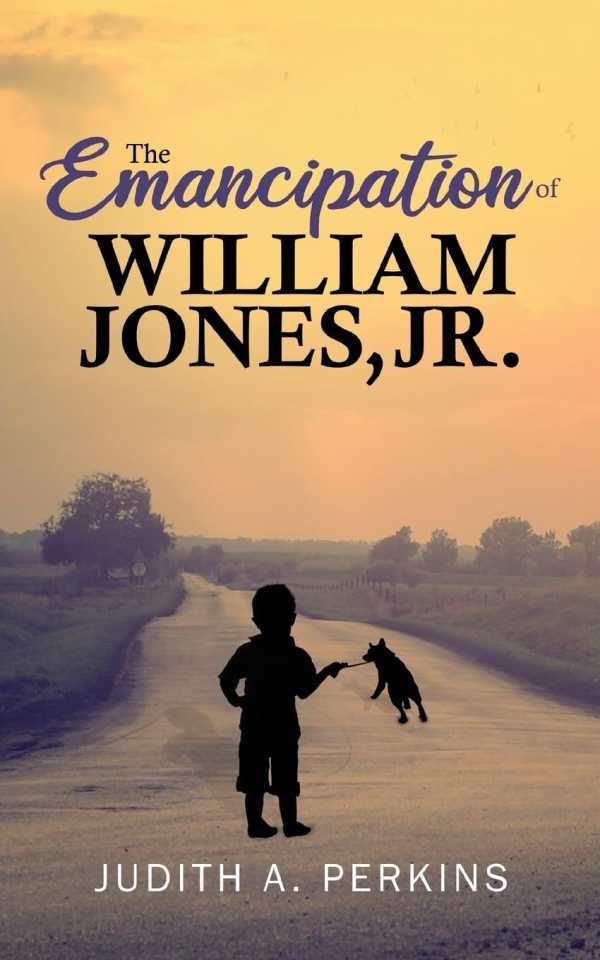The Emancipation of William Jones, Jr.
A moralizing novel, The Emancipation of William Jones, Jr. focuses on a boy’s coming-of-age in a hardworking turn-of-the-century ranching community.
In Judith A. Perkins’s novel The Emancipation of William Jones, Jr., a boy grows up in a Washington ranch town, his maturation informed by the examples of his extended family and neighbors.
Anna never wanted to be a mother. She abuses William and then leaves him with her family. They teach him to read, write, and ranch. They also teach him about love and get him a dog, Patch, with whom he can be playful. Despite his mother’s inattention, he comes to accept his new family’s love. He and Patch take care of each other as constant companions.
By the time Anna comes back, feeling lonely and repentant, William has matured. Rawlings, his adopted town, has also changed. William aspires to follow the examples set by the hardworking and kindhearted people around him.
Indeed, the story is more about William’s community than it is about him alone. Its chapters highlight different characters and progress in tandem toward a resolution. Their pieces tie together as the book progresses: Anna’s outbursts at a family wedding lead to later efforts to address her negligence as a mother. A lawyer builds a custody case; meanwhile, William develops a taste for justice. Another negligent parent who’s due to return to town after his prison release sets the town on edge.
But as a result of these switches in focus, the book assumes a bumping pace. Its episodes are emotive, focused on circumstances that make people angry, sad, and resentful. They’re also discursive, as with mealtime discussions and planning scenes.
As William watches other people make mistakes, the story constructs its ultimate message in a roundabout way: It is focused on stewardship, the consequences of people’s behavior, and the importance of cooperation. Periods of progress hang in the background, too, as with notes on automobile regulations and adjustments to population booms.
In its efforts to show how the townspeople are connected to each other, the book also fails to individuate its characters. Couples get engaged and married in similar ways; they use the same words when speaking with one another. The book’s morals are binary: Anna and other negligent parents are bad; the others, en masse, are good. As a result of such loose construction, Anna’s redemption strains credulity.
The Emancipation of William Jones, Jr. is a hopeful coming-of-age novel that weaves a town’s history into a boy’s personal growth.
Reviewed by
Mari Carlson
Disclosure: This article is not an endorsement, but a review. The publisher of this book provided free copies of the book and paid a small fee to have their book reviewed by a professional reviewer. Foreword Reviews and Clarion Reviews make no guarantee that the publisher will receive a positive review. Foreword Magazine, Inc. is disclosing this in accordance with the Federal Trade Commission’s 16 CFR, Part 255.

